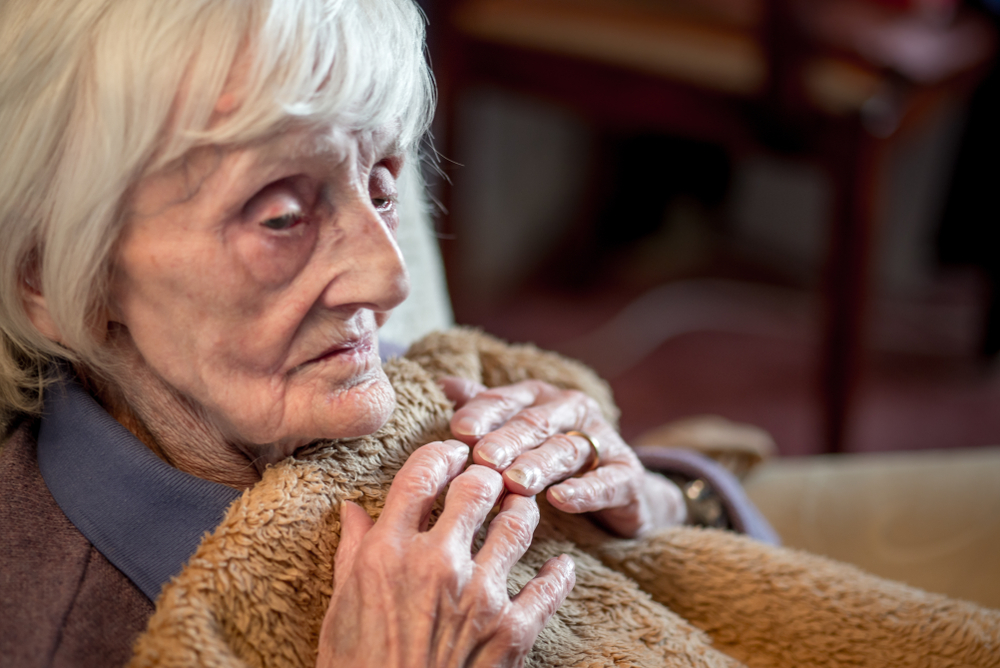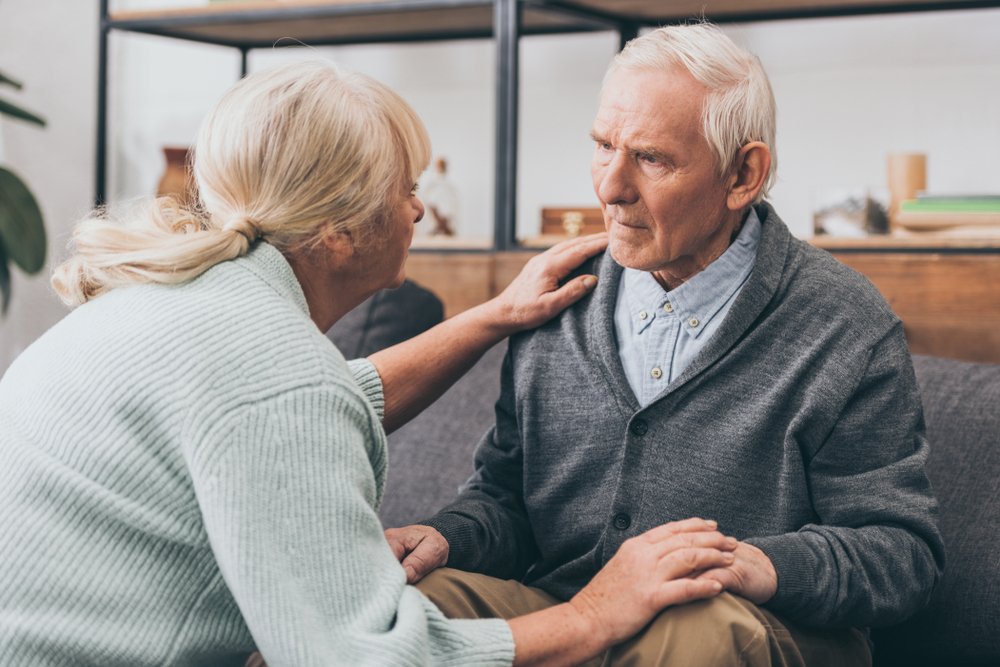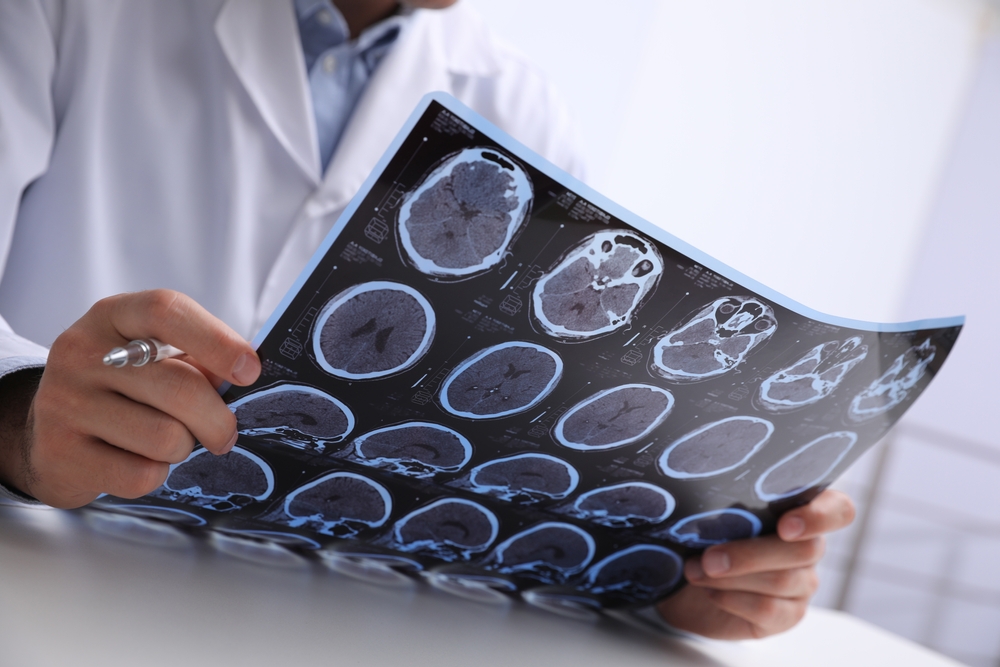Dr. Oz, known for his role as the host of The Dr. Oz Show, said his mother, Suna Oz, 81, was diagnosed with Alzheimer’s. He said that he didn’t recognize the symptoms, even as his mother’s behavior changed. He and his sisters noticed some odd things—their mother was struggling to find her words, and her attire had changed, but they didn’t recognize these as signs of cognitive decline.
The siblings finally realized something was up when their mom started becoming irrational. After taking her for testing, the diagnosis was confirmed—she had Alzheimer’s. Dr. Oz says watching his mother lose her memories was devastating. He attributed the clues for her mental state to other things—that his mom was older, stressed out, that her husband was sick and had recently passed away.
Through his mother’s diagnosis, Oz also learned that he carries one of the genes for Alzheimer’s, which doesn’t guarantee that a person will get Alzheimer’s, just that they’re at risk for the disorder [1].
What Is Alzheimer’s Disease?

Alzheimer’s is a progressive, irreversible brain disorder that affects memory and thinking [2]. It’s a form of dementia, or cognitive decline, and is the most common form of cognitive decline among older adults.
Damage begins in the hippocampus, an area of the brain that plays an essential role in forming memories. Alzheimer’s results in the death of neurons in the brain—which are responsible for transmitting information from the rest of the body to the brain, and vice versa. This progressive neuron death will eventually affect every aspect of a person’s life [3].
As the disease progresses, other areas of the brain become damaged as well, and a person will lose their ability to do much of anything and eventually die [4]. Worldwide, an estimated 50 million people live with Alzheimer’s disease and dementia [5].
Read More: Two Alzheimer’s Sufferers Claim to Have ‘Cured’ Their Disease After This Change
Signs of Alzheimer’s to Watch Out for

Symptoms of Alzheimer’s can be late or early-onset. With late-onset, symptoms begin to appear in a person’s mid-60s; in early-onset, between 30s and 60s (although this form is rare) [6].
There are several signs you can be aware of when it comes to Alzheimer’s disease, including [7]:
- Short-term memory loss. The person may ask the same questions over and over, forgetting things you recently told them. Unlike age-related memory loss, the person will be unable to recall the information later.
- Difficulty keeping up with work or bills. If the person begins to consistently have trouble keeping track of bills or doing tasks they perform often, this could be a sign of cognitive decline.
- Loss of sense regarding time or location. They may forget where they are, or be unable to recall the day, year, or how much time has passed.
- Vision changes. Yes, changes in vision can point to Alzheimer’s disease in some cases. The person may have trouble determining color, distance, or reading.
- Issues with language. You may be in a conversion with someone when they will suddenly stop and not remember what they were talking about, and be completely unable to recall it, even later.
The person may also repeat themselves, or consistently struggle to find the right word, sometimes using substitutes in place of words.
For instance, Dr. Oz says his mother would say “You look pretty prettier today”, instead of saying, “You look beautiful today.”

- Consistently misplacing items. People with Alzheimer’s may put things in odd places unintentionally. For example, they may put the TV remote in the silverware drawer, and not recall what they did with it. Some patients may accuse others of stealing when they cannot locate an item.
- Changes in decision-making. If you notice a loved one has gotten more careless with their money, or their appearance has become unkempt or altered, or they engage in reckless or irrational behavior, these could be signs of Alzheimer’s.
- Disengagement. The person may no longer want to socialize or attend events or engagements they used to.
- Mood or personality changes. In Alzheimer’s disease, sometimes patients experience changes that can alarm loved ones—they may be easily upset, become confused, afraid, depressed, or even distrustful.
Now that you know what to look out for, what can you do if you suspect a loved one is suffering from Alzheimer’s?
Ways to Help Family Members Suffering from Alzheimer’s

The first way you can attempt to help a family member who you believe is suffering from some form of dementia is to speak with them about it first. Be aware that the person may be confused or they may have not noticed that anything is different about their life. Before broaching the topic, invite them to talk with you in a familiar space, and don’t rush the conversation [8].
Begin by asking if they’ve been feeling differently or struggling lately. Then, try to persuade them to see their primary care physician. If they are reluctant to do so, you can still contact their doctor yourself and voice your concerns—the physician cannot disclose information about a patient to you, but they can listen [9].
Read More: The Connection Between Air Pollution, Alzheimer’s and Cancer that Nobody Told You About
What else can you do to support someone who is suffering from Alzheimer’s disease, or who you believe has a form of dementia?

- Learn about the disorder. Alzheimer’s can cause many different behaviors and effects. By preparing yourself, you can determine the best way to respond to their changing behavior or abilities. It’s important to be patient and show you care!
- Support them and their family. Sometimes offering an ear to listen or helping them with their daily tasks can make a big difference for those caring for a loved one with Alzheimer’s!
- Don’t exclude them. Excluding the person with Alzheimer’s or their family doesn’t help anything. Keep them included in your plans, or invite them to do something simple like going for a walk.
- Give it time. Just because you offer to help someone now and they decline, doesn’t mean you shouldn’t ask again later. For many families, the diagnosis will continue to change their lives.
Is There Treatment for Alzheimer’s?

Alzheimer’s is a progressive disorder, so while there are treatments, there’s currently no cure that will halt the progression of the disease. Conventional treatment for Alzheimer’s focuses on prescription medications that help people maintain their cognitive function and manage the behavioral changes that come with the disease [10].
Natural therapies for Alzheimer’s focus on the Mediterranean diet, which research has shown can “protect brain health” to reduce the brain tissue damage associated with Alzheimer’s [11].
Exercise has also been shown to be beneficial for patients with Alzheimer’s as it improves cognitive function, and blood flow to the brain, and helps patients preserve their ability to do daily living tasks. Exercise has even been shown to increase hippocampal volume, the part of the brain we discussed earlier that’s essential for forming memories [12].
To prevent Alzheimer’s disease, experts say that eating a healthy diet, exercising, and getting enough sleep are essential to reducing your risk [13]! Is someone you know suffering from Alzheimer’s disease? Don’t miss the warning signs, and don’t chalk up forgetfulness or odd behavior to old age—talk with your loved one about scheduling an appointment with their primary care provider to assess their risk for Alzheimer’s and get a potential diagnosis!
Read More: Effects of THC on Damaging Alzheimer’s Proteins
Sources
- ALZ
- NIH
- NIH
- NIH
- Alzheimers
- NIH
- ALZ
- https://www.nhs.uk/conditions/dementia/worried-someone-has-dementia/
- https://www.alzheimers.org.uk/about-dementia/symptoms-and-diagnosis/how-dementia-progresses/concerned-about-someone-elses-memory-problems
- https://www.nia.nih.gov/health/how-alzheimers-disease-treated
- https://aanddjournal.net/article/S1552-5260(15)02037-3/fulltext
- https://journals.lww.com/acsm-csmr/fulltext/2017/01000/Alzheimer_s_Disease_and_Exercise___A_Literature.9.aspx
- https://www.health.harvard.edu/alzheimers-and-dementia/what-can-you-do-to-avoid-alzheimers-disease
- https://people.com/health/dr-ozs-mother-has-alzheimers-im-feeling-guilty-because-i-completely-missed-the-signs/?fbclid=IwAR3IIjGaB3JBsfnIf-a8jaBS54Wd06LjDBxtNrP4R-tFUVHCmpL4N19iiYc

